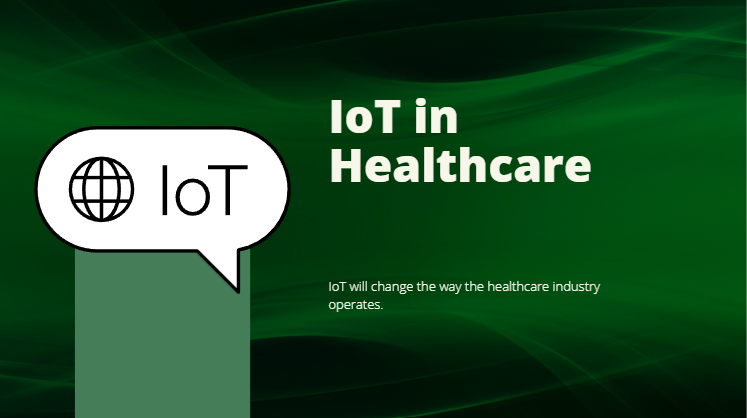In recent years, the healthcare industry has witnessed a significant transformation thanks to the integration of cutting-edge technology. Among the most impactful innovations is the Internet of Things (IoT), which is making a profound impact on how healthcare is delivered, managed, and experienced. In this guest post, we will delve into the world of IoT in healthcare, exploring its benefits, challenges, and the exciting possibilities it presents.
The IoT Revolution in Healthcare
The Internet of Things, or IoT, refers to the network of interconnected devices and sensors that can collect and exchange data. In the healthcare sector, IoT is changing the game by connecting various devices, from wearable fitness trackers and remote monitoring equipment to smart medical devices and hospital infrastructure.
1. Remote Patient Monitoring
One of the most significant advantages of IoT in healthcare is its potential to revolutionize patient care. Remote patient monitoring, made possible through wearable devices and sensors, enables healthcare professionals to track a patient’s vital signs and health parameters in real time. This empowers doctors to provide personalized care, catch issues early, and reduce hospital readmissions.
2. Improved Disease Management
IoT solutions are particularly beneficial for patients with chronic conditions. Smart devices can help them manage their diseases more effectively.
3. Enhanced Medication Management
IoT-connected pill dispensers can remind patients to take their medications and provide a record of adherence to healthcare professionals. This reduces medication errors and helps patients adhere to their treatment plans.
4. Predictive Analytics and Preventive Care
IoT can collect vast amounts of data, which can be analyzed to predict disease outbreaks, trends, and potential health risks. This enables healthcare systems to implement preventive measures more effectively.
5. Streamlined Hospital Operations
Beyond patient care, IoT improves the efficiency of healthcare institutions. Hospital administrators can use IoT for asset tracking, energy management, and predictive maintenance of medical equipment. This not only saves costs but also ensures a smoother patient experience.
Challenges and Considerations
While IoT in healthcare holds immense promise, it also comes with its share of challenges:
- Data Security and Privacy:
- Protecting the vast amounts of sensitive health data generated by IoT devices is a top priority. Robust security measures and compliance with regulations such as
- HIPAA is essential.
- Interoperability:
- Ensuring that different IoT devices and platforms can communicate with each other seamlessly remains a challenge. Standardization efforts are ongoing to address this issue.
- Regulatory Compliance: Healthcare is a highly regulated industry. Ensuring IoT solutions comply with various regulations and standards is crucial.
The Future of Healthcare with IoT
The future of healthcare is undoubtedly intertwine with IoT. Here’s a glimpse of what we can expect:
- Personalized Medicine:
- IoT will enable the creation of highly personalized treatment plans by continuously monitoring individual health parameters and adapting care accordingly.
- Telemedicine and Telehealth:
- IoT will play a pivotal role in expanding the reach and capabilities of telemedicine, making it easier for patients to access healthcare from the comfort of their homes.
- AI Integration:
- AI-driven analytics will process the vast amount of IoT-generated healthcare data to provide actionable insights and support clinical decision-making.
- Real-time Health Alerts:
- Wearable IoT devices will not only monitor health but also provide real-time alerts and interventions to help users maintain optimal health.
- Community Health:
- IoT can be used to collect data on a community level to identify health trends, allocate resources, and take preventive measures.
Conclusion
IoT in healthcare is poised to make a profound impact on how we receive and deliver medical care. While challenges exist, the potential benefits, including improved patient care, streamlined operations, and more efficient healthcare systems, make it an exciting field to watch. As we move forward, it is vital for healthcare professionals, technology experts, and policymakers to collaborate and create a healthcare landscape that harnesses the full potential of IoT, prioritizing the well-being of patients and the greater community.
The Internet of Things is not just a buzzword; it’s a technological revolution that will help shape the future of healthcare, making it more patient-centric, data-driven, and efficient than ever before.

